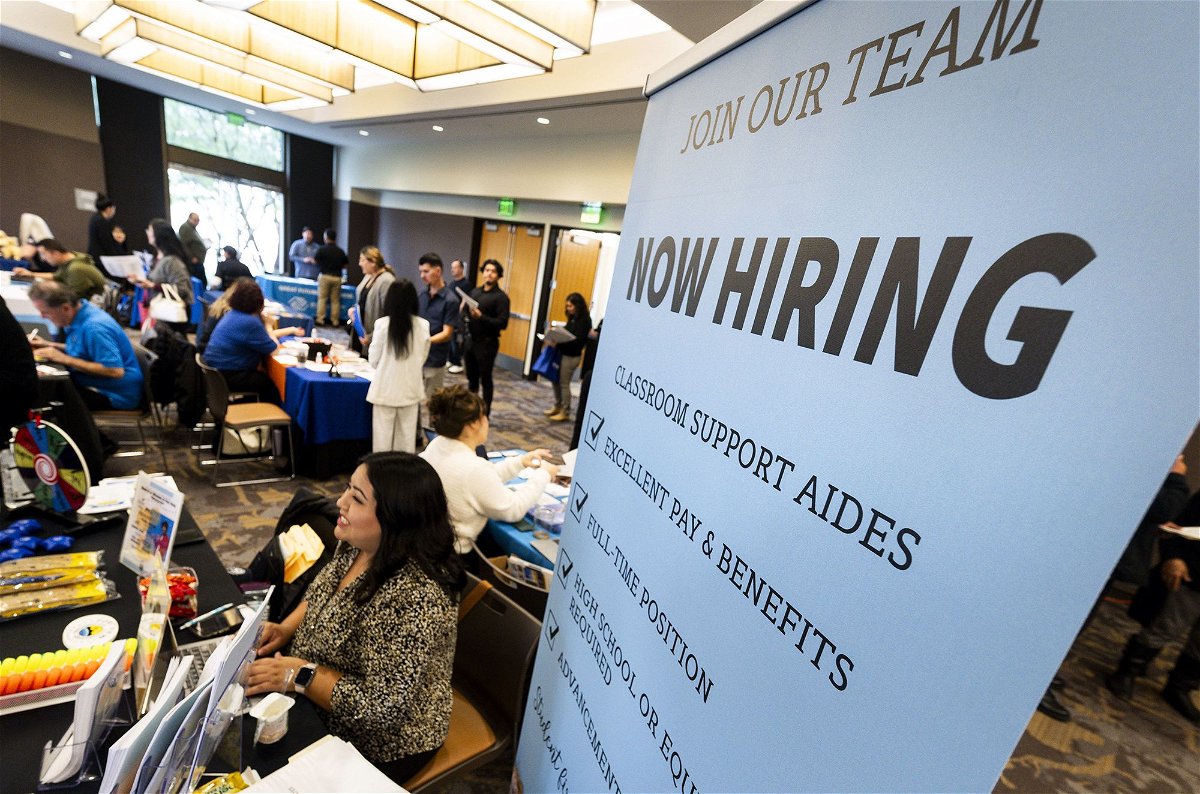Every month, economists expect the labor market to slow. Will it ever?

By Elisabeth Buchwald, CNN
New York (CNN) — Almost every month, economists expect the hot US labor market to start showing signs of exhaustion. Instead, it plows forward full steam ahead.
Last month was certainly no exception. Economists projected 205,000 jobs were added in March, a slowdown compared to February’s revised gains of 270,000. But last Friday’s data showed a shocking 303,000 new jobs were created that month.
That left Jefferies economist Thomas Simons “borderline speechless.”
“We did not expect to see such strong data,” he added in a note Friday.
Simons is hardly the only economist baffled by how well the labor market has held up as inflation has cooled significantly, given the two typically don’t go hand in hand.
So it can’t continue like this forever. The booming labor market has to run out of gas eventually, right?
Enjoy it while it lasts
Historically speaking, there’s only so long a really good labor market can last until, for instance, a recession or tighter financial conditions disrupt it. The current streak of a sub-4 % unemployment rate is highly unusual — the late 1960s was the last time the unemployment rate was below 4% for 26 weeks.
On top of that, March’s 303,000 gains are nearly double the average monthly job gains the economy experienced over the past two decades.
Some economists view it as a potentially worrisome sign that the majority of job gains over the past few months have been concentrated in sectures such as health care, government, leisure and hispitality and private education. Without gains across those sectors, the economy would appear a lot less strong.
Taken together, that could mean the life expectancy of the current labor market isn’t very long.
Keep calm and carry on?
There are also reasons to believe a slowdown is far off.
“For the moment, employment will likely continue to grow or, at worst, flatten,” Will Baltrus, an economist at The Conference Board, said in a statement Monday, after the group released new data suggesting hiring in the US is poised to remain strong the rest of the quarter.
Even with all the impressive gains over the past few years, there were still 1.7 million more job openings in Feburary of this year compared to Feburary 2019, according to Job Openings and Labor Turnover data published by the Bureau of Labor Statistics.
And the ratio of job openings per unemployed person was 1.4 in February. That’s a lot lower than it was earlier in the pandemic but it’s a higher ratio compared to February 2019 when it was 1.1. That signals the labor market remains tighter than it was compared to before the pandemic.
Additionally, the hard-hit leisure and hospitality only just recouped all of the job losses from the pandemic.
One big reason why the labor market continues to defy expectations is the result of a surge in immigration over the past year. That population boom is supporting thousands more jobs that otherwise would not be sustainable, according to a recent Brookings Institution report. At the same time, it hasn’t caused there to be fewer jobs available.
“While we still expect job growth to moderate this year, the ongoing strength of labor force growth — fueled mostly by robust immigration — is providing a serious tailwind,” Dante DeAntonio, a labor economist at Moody’s Analytics, said in a statement released after the March jobs report on Friday.
The-CNN-Wire
™ & © 2024 Cable News Network, Inc., a Warner Bros. Discovery Company. All rights reserved.
